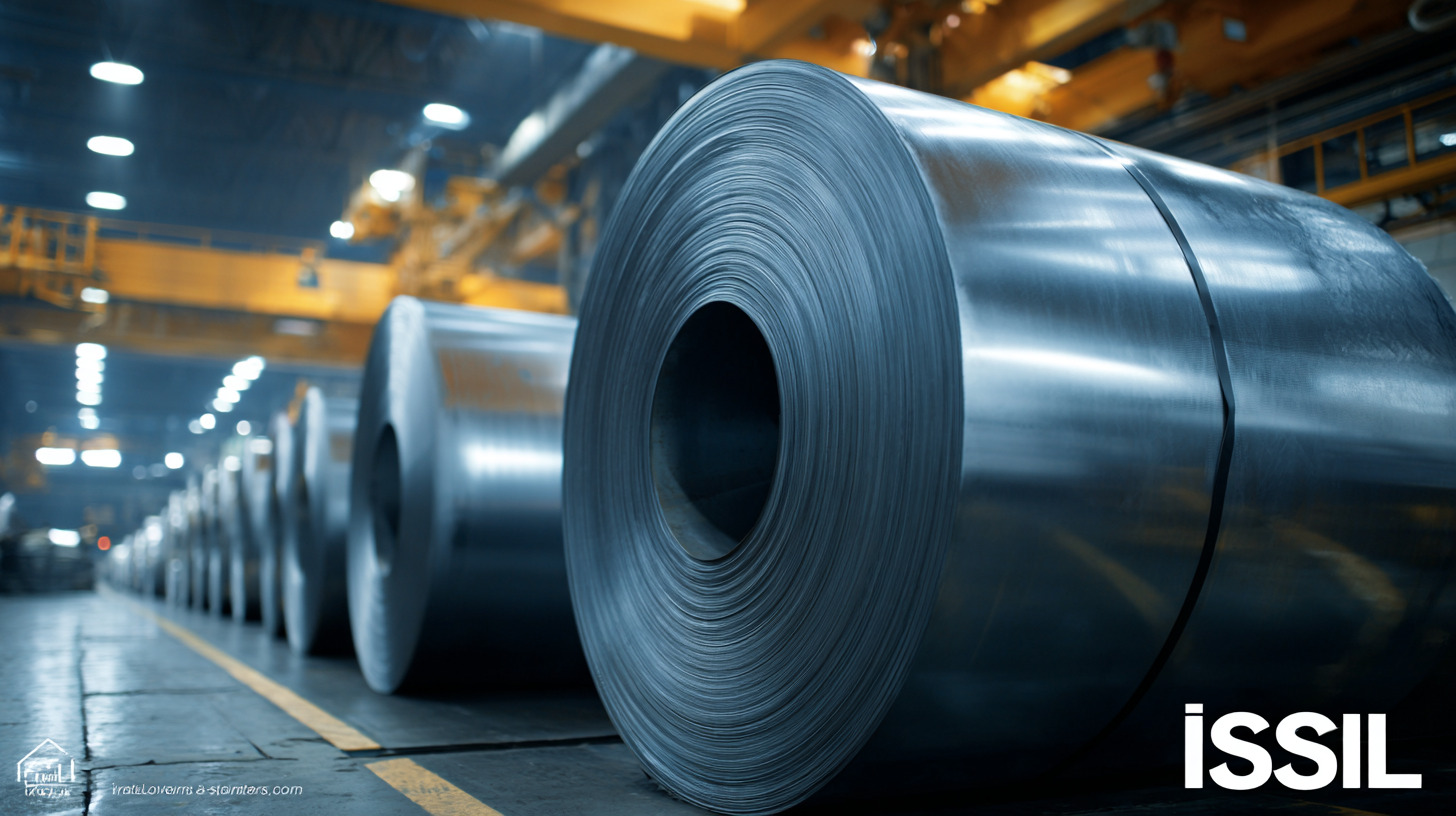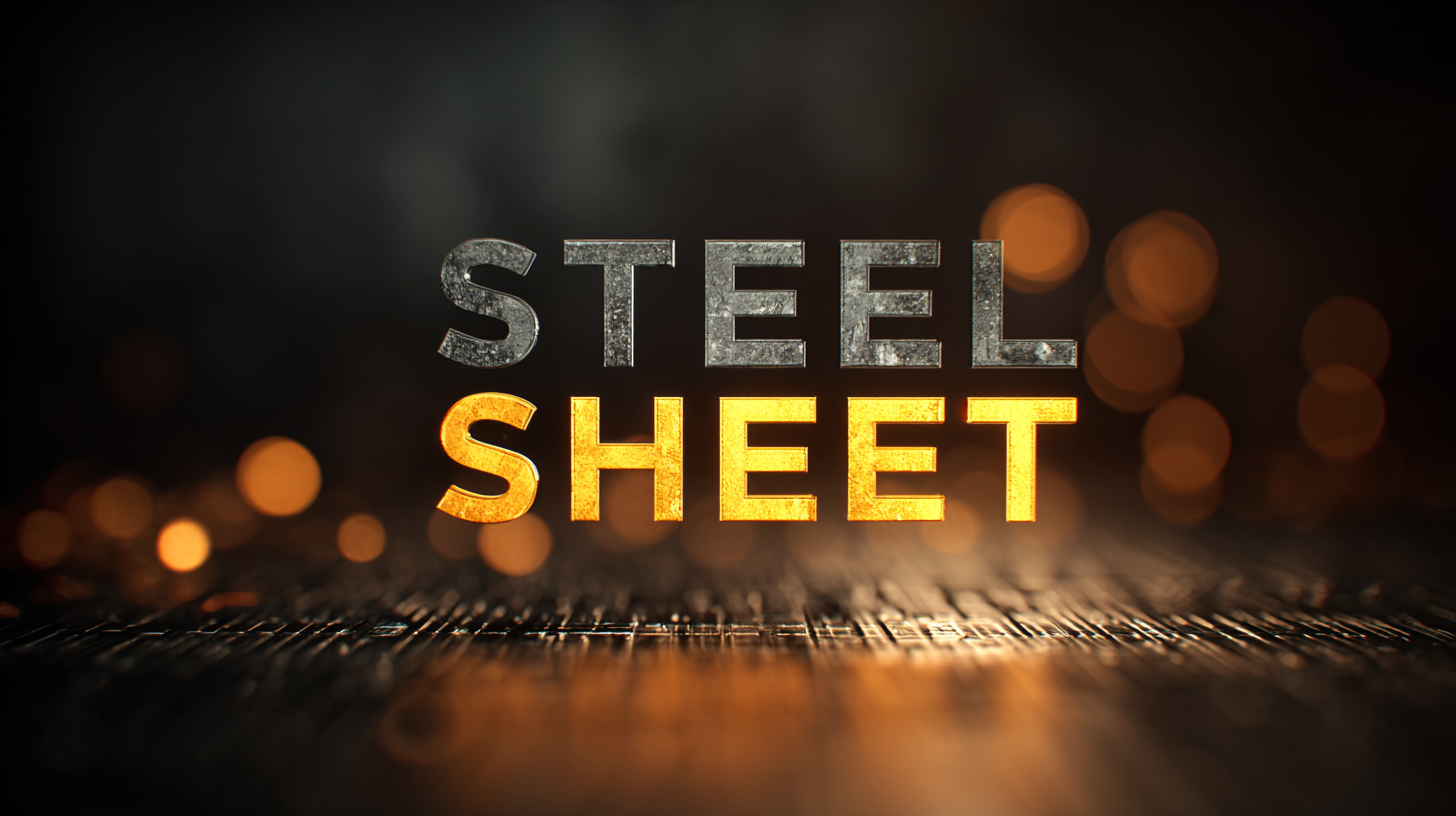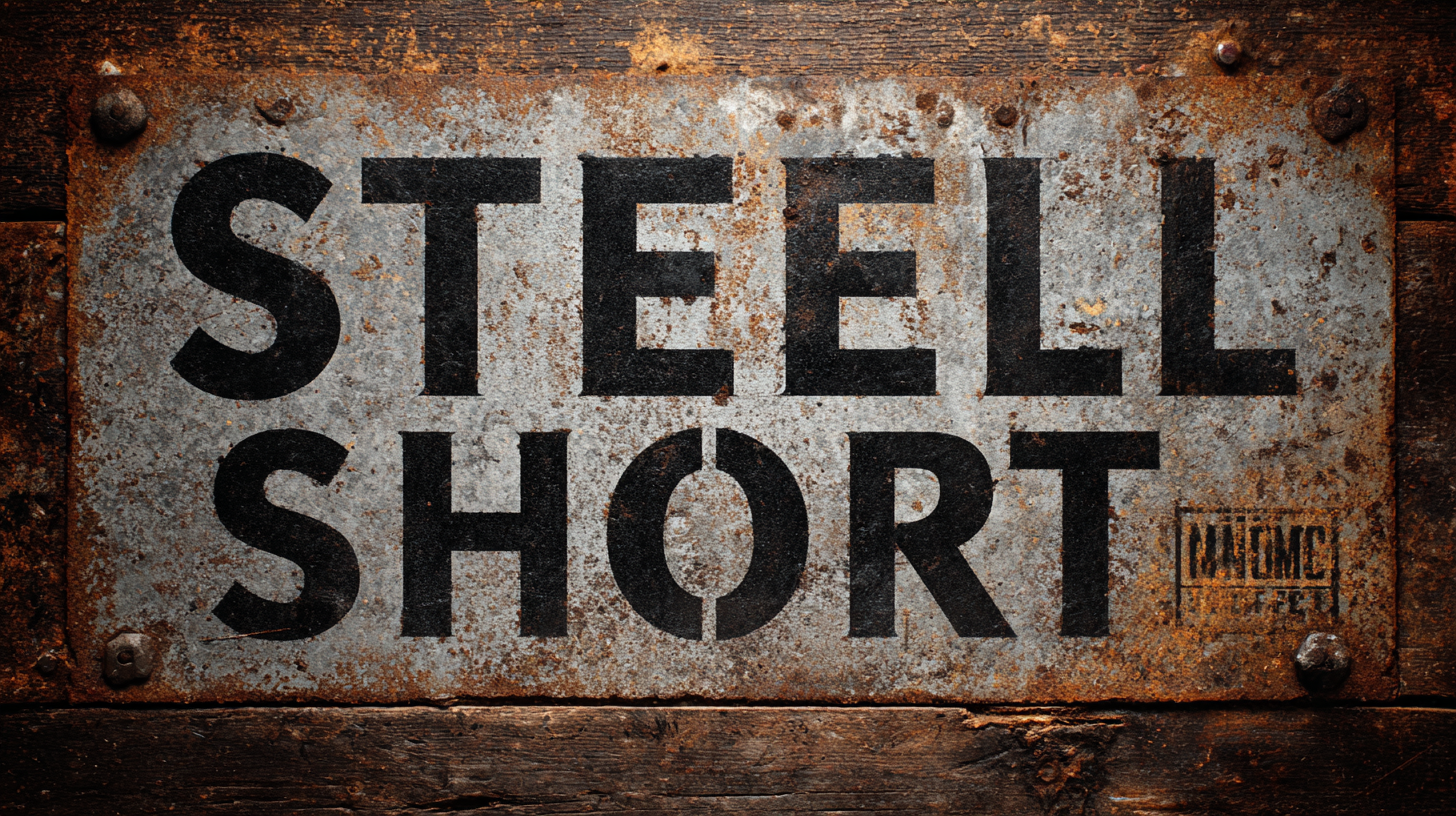
In the highly competitive steel sheet industry, establishing trust and credibility is paramount for success in global trade. As businesses strive to expand their market reach and cater to international clients, the significance of import-export certifications cannot be overstated. These certifications not only validate the quality and safety of steel sheets but also demonstrate compliance with international standards, ensuring that products meet the expectations of diverse markets.

This blog will unveil the ten essential import-export certifications that are crucial for businesses looking to thrive in the steel sheet sector, emphasizing how manufacturers from leading Chinese factories have built a robust reputation through adherence to these standards. By understanding and obtaining the right certifications, companies can navigate the complexities of global trade, fostering a reputation that resonates with reliability and excellence.
In the highly competitive steel sheet industry, certifications play a pivotal role in establishing credibility and ensuring quality compliance. According to a report by the World Steel Association, approximately 70% of industry leaders prioritize suppliers who possess relevant certifications, demonstrating the significance of these credentials in decision-making processes. Certifications not only assure clients of the quality and safety of the products but also reflect adherence to international standards, which can enhance market penetration and customer trust.
Moreover, certifications such as ISO 9001 and ISO 14001 are crucial for companies aiming to improve their operational efficiency and sustainability. A study by Steel Market Update indicates that organizations with these certifications often experience at least a 15% reduction in production costs due to improved processes and waste reduction practices. As environmental regulations become stricter globally, having a robust compliance framework through recognized certifications can provide a competitive edge, allowing businesses to navigate regulatory challenges while appealing to environmentally conscious consumers.

In the steel sheet industry, navigating the complex landscape of import-export certifications is crucial for compliance and market success. Key regulatory bodies play a vital role in issuing these certifications, ensuring both domestic and international transactions adhere to stringent safety and quality standards. Organizations such as the International Organization for Standardization (ISO) and the American Society for Testing and Materials (ASTM) set benchmarks that help manufacturers achieve compliance, fostering trust with clients worldwide. According to a recent report by MarketsandMarkets, the global steel market was valued at approximately $1.09 trillion in 2021, demonstrating the importance of adhering to these standards for maintaining a competitive advantage.
Furthermore, compliance with certifications from regulatory agencies like the European Committee for Standardization (CEN) and the Bureau of Indian Standards (BIS) is imperative for companies aiming to penetrate foreign markets. A study by Research and Markets highlighted that the demand for certified steel products is projected to grow at a CAGR of 5.1% from 2022 to 2027, underscoring the increasing significance of import-export certifications. By aligning with these regulatory frameworks, steel companies not only ensure their products meet international criteria but also enhance their potential for growth and market expansion.
In the highly competitive steel sheet industry, obtaining the right certifications is crucial for establishing credibility and ensuring compliance with regulations. Companies should prioritize acquiring essential certifications to meet industry standards, bolster market appeal, and enhance operational efficiency. Some of the vital certifications include ISO 9001 for quality management, ISO 14001 for environmental management, and OHSAS 18001 for occupational health and safety. These credentials not only help in streamlining processes but also improve customer trust.
Tips for navigating the certification process include thoroughly understanding the specific requirements of each certification. This can prevent unnecessary delays and costs. Collaborating with experts or consultants in the certification field can also provide valuable insights and streamline the application process. Additionally, consider participating in training sessions related to the certifications; these can foster a culture of compliance and awareness within your organization.
Finally, staying updated on changes in regulations and industry standards is paramount. Regularly reviewing and renewing your certifications demonstrates a commitment to excellence and responsibility. Make it a point to engage with industry forums and workshops to enhance your knowledge and network with other professionals in the steel sheet domain.

Navigating the certification process for steel sheet exports can be daunting, but understanding the essential certifications is crucial to success in the global market. The first step involves familiarizing oneself with various international standards, such as ISO, ASTM, and EN certifications, which ensure that your steel products meet specified quality and safety requirements. Each certification has its own set of criteria, and being well-versed in these can significantly streamline your export process.
Once you have identified the required certifications, the next step is to compile necessary documentation and undergo inspections. This often involves collaborating with accredited third-party organizations that specialize in certifications. Maintaining clear communication with these bodies and being proactive in addressing any issues that arise during inspections can accelerate the certification process. Additionally, investing in training for your staff on compliance requirements can further minimize delays and promote a culture of quality assurance within your organization, ultimately enhancing your competitiveness in the steel sheet industry.
In the competitive realm of the steel sheet industry, obtaining the right import-export certifications can significantly enhance a company’s credibility and market reach. Proper certifications not only assure clients of compliance with international standards but also enhance the perceived quality of the products being offered. For businesses looking to expand their footprint in global markets, having the necessary certifications can be a crucial differentiator, fostering trust and facilitating smoother trade relations.
Furthermore, proper certifications can lead to numerous operational benefits. They can streamline the shipping process by ensuring all products meet specific regulatory requirements, thus minimizing customs delays. Additionally, companies with recognized certifications often find it easier to negotiate better terms with suppliers and buyers, as well as gain access to exclusive contracts or partnerships. This competitive edge is invaluable in an industry where quality and reliability are paramount. In essence, investing in the right certifications opens doors to new opportunities and safeguards the integrity of the business in the international marketplace.
This chart illustrates the importance level of various certifications crucial for the steel sheet industry in international trade. Proper certifications enhance credibility, ensure quality standards, and facilitate smoother customs processes, ultimately benefiting global business operations.